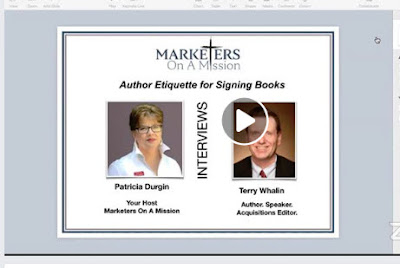The Smoke of Publishing
By Terry Whalin @terrywhalin
There is a common expression that something is not true and only smoke and mirrors. The origin of the phrase ’smoke and mirrors’ comes from when stage performers and magicians actually use smoke and mirrors to beguile the audience.
Within the publishing community, there is a lot of smoke or places you should not publish. I’ve thought long and hard about these words and don’t write them lightly. I’ve been in this community for many years and see eager authors who want to get their words into the world. When it comes to the publishing company, these authors fall prey to the wrong publisher or agent and then months or years down the road, they want to change their situation but don’t understand what happened to them and the choices that they made in this process.
In this article, I want to help you avoid the smoke and find the rose in your search for a book publisher. The process is not easy. First, ask good questions then listen for the answers. For example, how is the book distributed? Is that distribution only online? Is it in different formats? Will it appear physically inside brick and mortar bookstores? How are the books sold to libraries? Each publishing company will answer these questions differently.
Does the publisher encourage presales for the book? How does that happen? One of my Morgan James authors has over 200 presales for his business book which will release later this year. These presales are important because our sales team will notice this activity and use it to drive additional sales. If your publisher doesn’t encourage or even do presales, it might be a caution about using this particular company.
Take a look at a physical book from this publisher. One of my recent authors at Morgan James Publishing, was considering several different options. He ordered a book from these publishers then compared them. As you look at the book, think about the cover design and how it will draw or discourage readers. Does the book include endorsements and/or a foreword? How is the back cover written? Also look at the spine and see if the title is clear on the book. Finally look at the barcode and see if it is done properly. Sometimes books will not include the price in the barcode and use a string of numbers like 90000. When the barcode does not include the price, it tells me this particular company has no plans to sell the book inside a brick and mortar bookstore (which uses the barcode when the book is purchased).
What type of marketing help does the publisher provide? What do these services cost to the author? For example, with each Morgan James author, I make a point to tell them that 80% of the marketing will be up to them (the bulk) yet our team is still coaching authors who published in 2005 (without charging them or free). I’m managing the author expectations and also telling them about the publishing house resources to help them.
How long has the publisher been in business and take a look at their success? Have they had books on the New York Times bestseller list or the Wall Street Journal bestseller list? If so, it indicates they doing more than selling online but also selling in brick and mortar bookstores.
Do they have satisfied authors? Can you speak with some of them about their experience? If you can’t speak with their authors, then you have another reason to exercise some caution in selecting this publisher.
What is the reputation of the editor or person you are speaking with about the publisher? For example, I have a long-time reputation in publishing. I understand my own reputation is involved in the publishing decision. You can see this element in the interview from New York Times bestselling author Jerry B. Jenkins when we spoke about Morgan James Publishing for his writing guild.
To compare publishing options is not easy. It’s almost like comparing apples and oranges because each one is different. As I’ve written in the past, there is no certain path of success but you can find your path to get published.
One of your best ways to avoid the smoke of publishing and making a poor choice is to get educated as an author. It’s one of the reasons that I wrote 10 Publishing Myths. You can get my book for only $10 which includes the postage and over $200 in bonuses. After you get this book, use a highlighter and take action on the different suggestions.
If you have made a mistake and have had a poor publishing experience, what do you do? Write another book or pull the rights back from the wrong place and take it somewhere new. Whatever steps you take, learn from it and keep going forward. The writing life is not straightforward for any of us but can be done with persistence, learning and consistency.
There is another old saying: you can lead a horse to water but you can’t make them drink it. I can lead the author to the right place but can’t make them sign their contract and get published. What steps do you take to avoid the smoke of publishing? Let me know in the comments below.
Tweetable:
Labels: action, cautions, choices, integrity, questions, Terry Whalin, The Smoke of Publishing, The Writing Life, writers





































